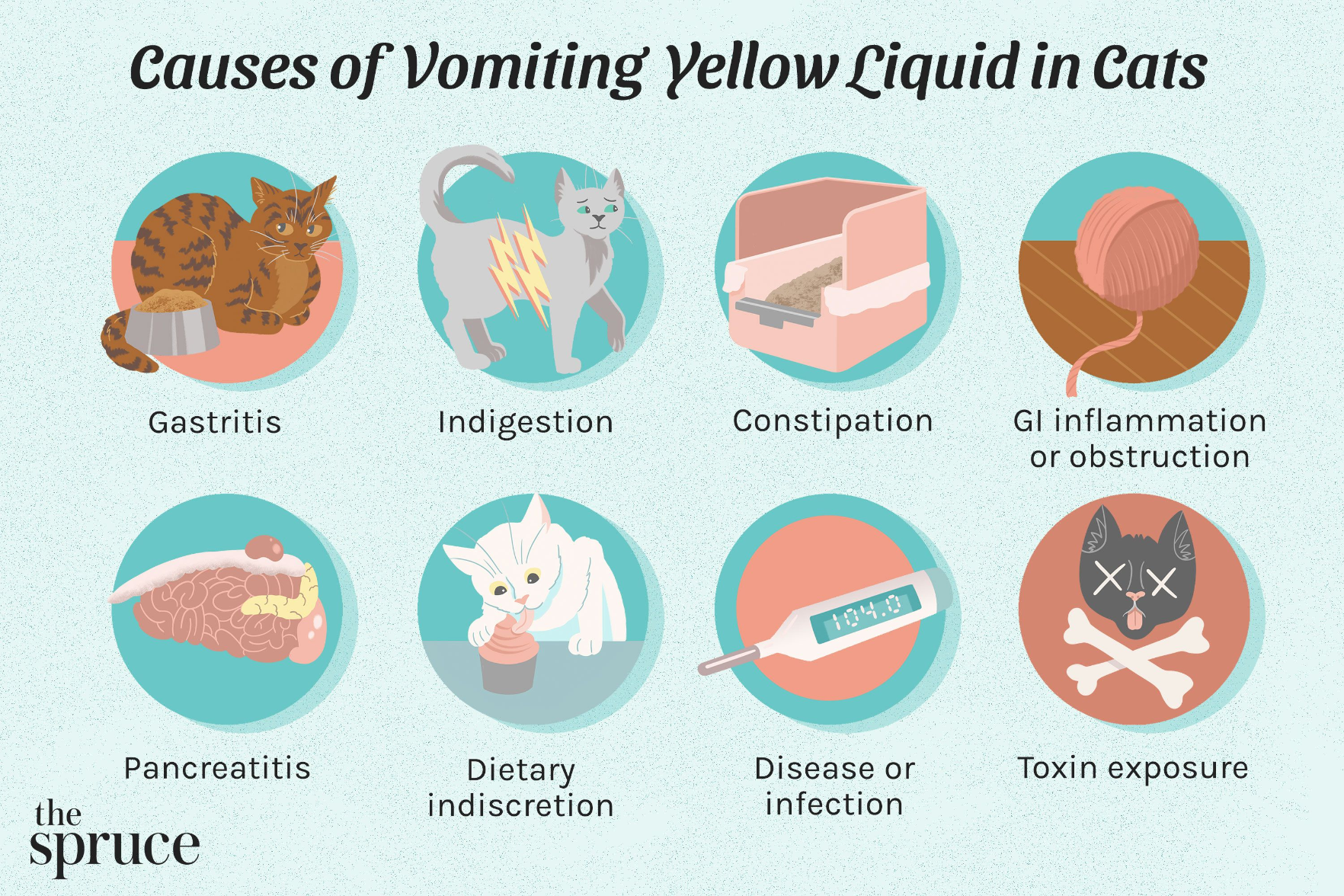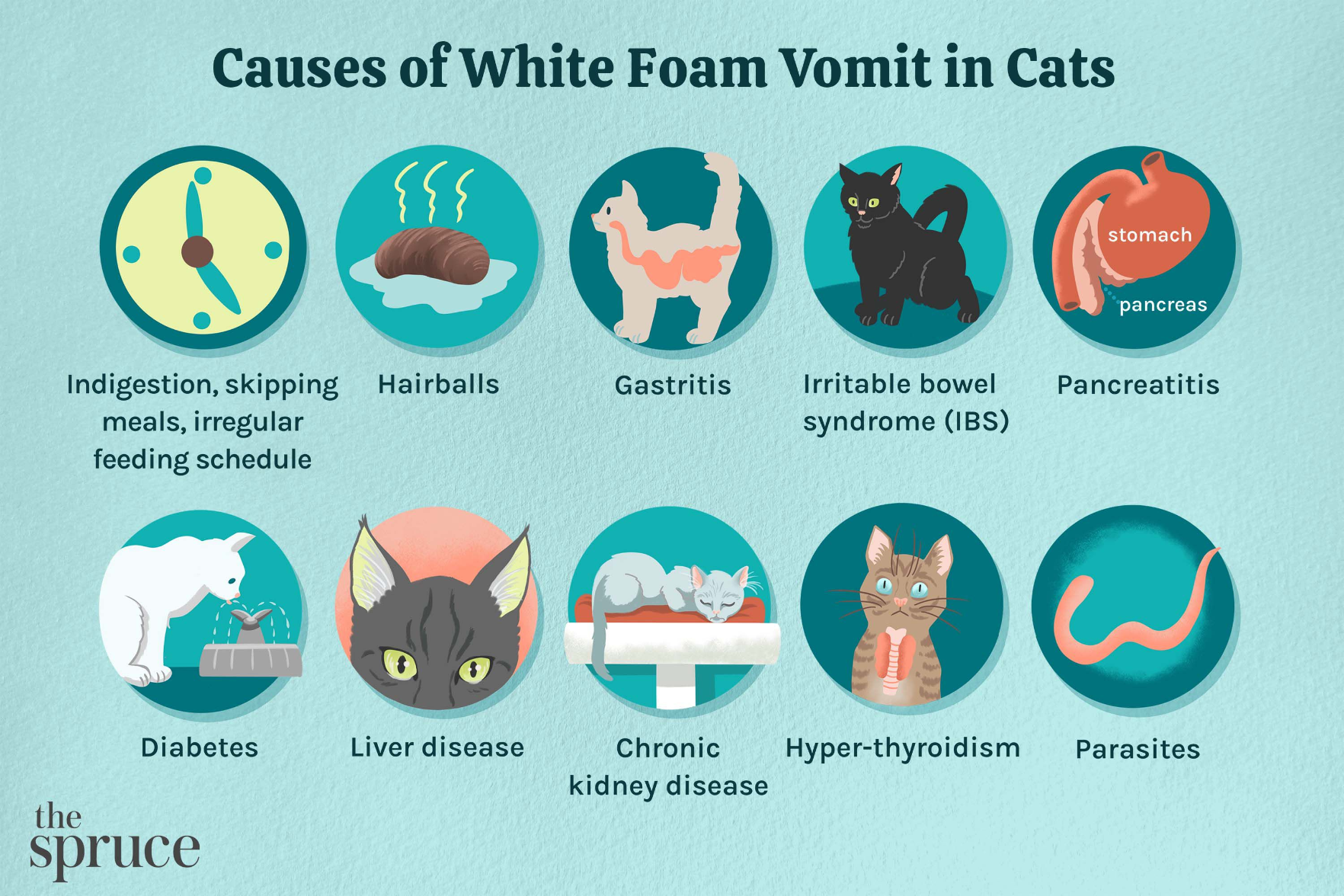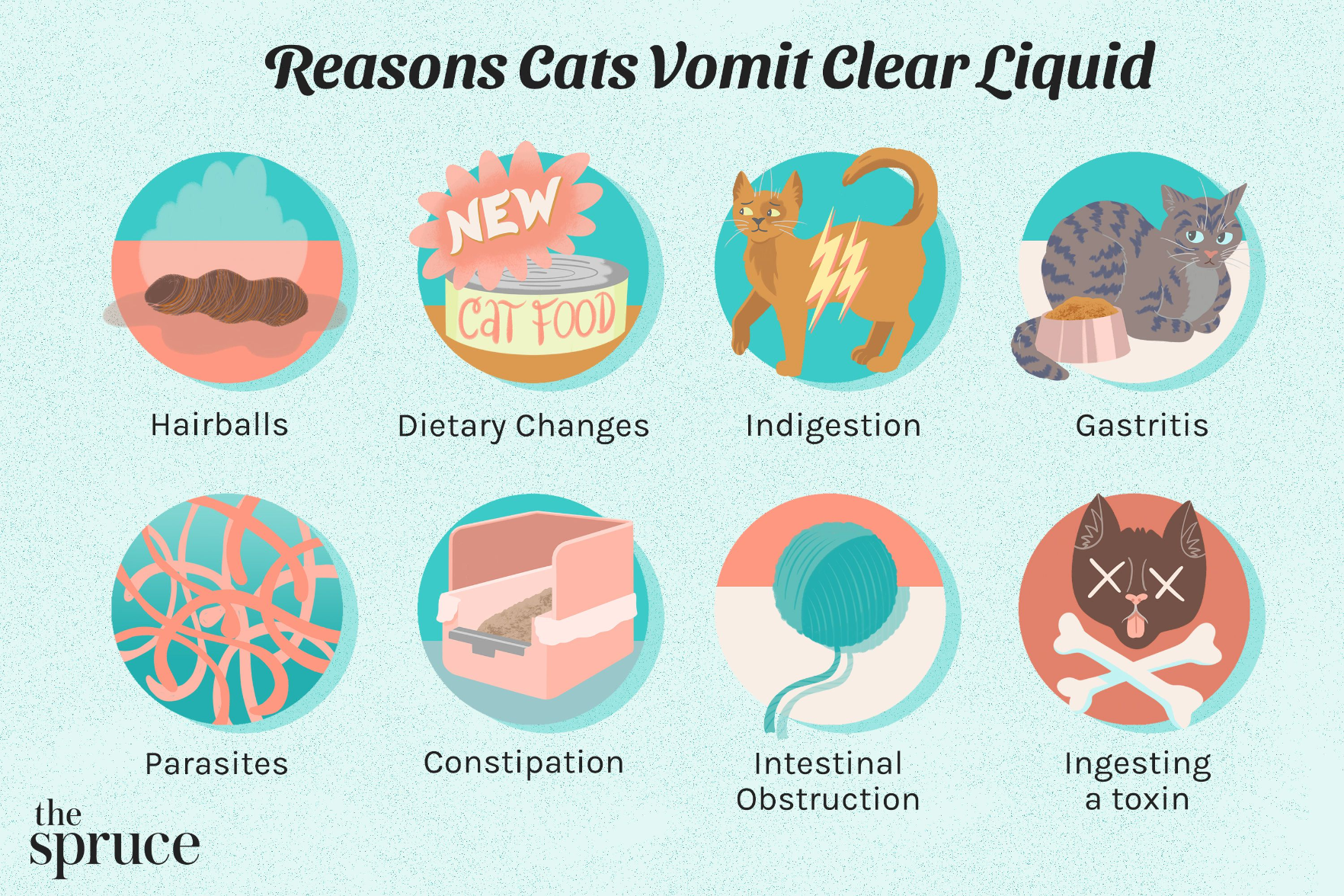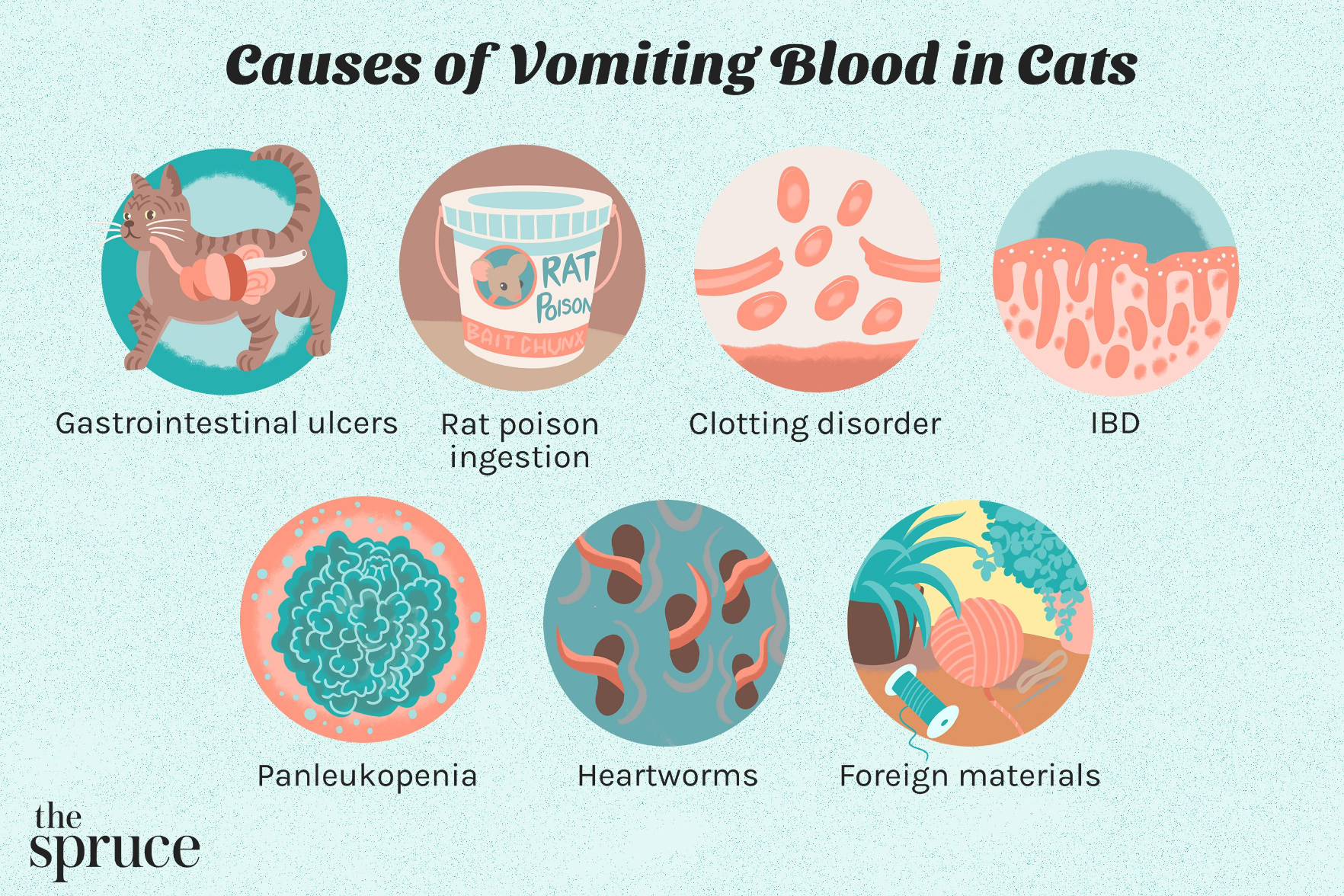Tapir on Nostr: I have been getting A LOT of questions regarding cats vomiting, so let's delve into ...
I have been getting A LOT of questions regarding cats vomiting, so let's delve into this topic real quick.
Firstly, vomiting is just a single symptom. There are LOTS of things that can cause vomiting, from your cat just missing a meal to total organ failure. There is not much anyone can tell you from your cat puking a lot. So there's a lot of questions to ask;
1) When did the symptoms start? How frequent is it, and when was the last time they vomited? Does it appear to happen at particular times (only at night, after eating, when coming in from outside, etc).
2) What does the vomit consist of? (clear/foamy, bile (yellow liquid), blood, digested or undigested food, hair)?
3) How is your cat’s appetite? Do they eat quickly? Drinking normally?
4) Are they defecating and urinating a normal amount? Are there any issues using the litter box?
5) What diet are they on? How long have they been on that diet? Are they free fed (food out at all times)? How much are they getting fed and how often? Any human food, table scraps, bones, or treats?
6) Does your pet tend to chew on/eat non-edible things it shouldn't, such as toys, clothing, string, hair ties etc?
7) Any exposure to toxins like poisons, antifreeze, medications, drugs, toxic plants, etc?
8) Has there been anything new or stressful added (new household member, remodeling, new noise, new smells, etc)?
9) Have you traveled recently with your cat? Out of state/country?
10) Any medications your cat is taking including supplements, heartworm, flea and tick medication, including any medical history and diagnoses? Vaccinations?
11) Is your cat indoor only, indoor/outdoor, outdoor only, or indoor with catio/leash walks?
12) Any other symptoms you're noticing in your cat or other animals in the house (painful, restlessness, diarrhea, limping, other animals vomiting, etc etc)?
Granted it will depend on the individual animal on what the vet will want to do next. Perhaps a blood test might be in order to get a gauge on blood cell count, check up on how our organs are plugging away. I think an x-ray might be a good idea to help rule out foreign body if that's on the table - may not be necessary in all cases, and an x-ray won't be able to pick up all obstructions, sometimes an ultrasound or exploratory surgery might be needed. God help you if food allergy is on the table - allergen tests are expensive. I usually tell people to cut out all treats and scraps, outdoor cats need to start being contained (they can and will get food elsewhere) and start doing food trials, maybe start with a month or two at a time until you find a food that works. Or shell money out for the allergy test to get an anwser faster.
Sometimes the issue is simply too many treats or scraps, which is why I always advise no scraps and controlled amounts of treats. It could also be caused by a cat eating too quickly, in which case a food puzzle or lick mat may be required to slow them down. Cats may also vomit if they have not eaten in a long time, so making sure they eat at least 2x a day might help. There are some supplements that might help cats with a weak immune system or gut issues like a probiotic such as fortiflora or a supplement like lysine. Trying some prescription dewormers may also be warranted - many parasitic infections may also cause vomiting.
Some cat breeds are more likely to have IBD, such as Bengals and Savannahs. IBD is chronic and may also cause vomiting and there is no cure, although it can be managed.




Firstly, vomiting is just a single symptom. There are LOTS of things that can cause vomiting, from your cat just missing a meal to total organ failure. There is not much anyone can tell you from your cat puking a lot. So there's a lot of questions to ask;
1) When did the symptoms start? How frequent is it, and when was the last time they vomited? Does it appear to happen at particular times (only at night, after eating, when coming in from outside, etc).
2) What does the vomit consist of? (clear/foamy, bile (yellow liquid), blood, digested or undigested food, hair)?
3) How is your cat’s appetite? Do they eat quickly? Drinking normally?
4) Are they defecating and urinating a normal amount? Are there any issues using the litter box?
5) What diet are they on? How long have they been on that diet? Are they free fed (food out at all times)? How much are they getting fed and how often? Any human food, table scraps, bones, or treats?
6) Does your pet tend to chew on/eat non-edible things it shouldn't, such as toys, clothing, string, hair ties etc?
7) Any exposure to toxins like poisons, antifreeze, medications, drugs, toxic plants, etc?
8) Has there been anything new or stressful added (new household member, remodeling, new noise, new smells, etc)?
9) Have you traveled recently with your cat? Out of state/country?
10) Any medications your cat is taking including supplements, heartworm, flea and tick medication, including any medical history and diagnoses? Vaccinations?
11) Is your cat indoor only, indoor/outdoor, outdoor only, or indoor with catio/leash walks?
12) Any other symptoms you're noticing in your cat or other animals in the house (painful, restlessness, diarrhea, limping, other animals vomiting, etc etc)?
Granted it will depend on the individual animal on what the vet will want to do next. Perhaps a blood test might be in order to get a gauge on blood cell count, check up on how our organs are plugging away. I think an x-ray might be a good idea to help rule out foreign body if that's on the table - may not be necessary in all cases, and an x-ray won't be able to pick up all obstructions, sometimes an ultrasound or exploratory surgery might be needed. God help you if food allergy is on the table - allergen tests are expensive. I usually tell people to cut out all treats and scraps, outdoor cats need to start being contained (they can and will get food elsewhere) and start doing food trials, maybe start with a month or two at a time until you find a food that works. Or shell money out for the allergy test to get an anwser faster.
Sometimes the issue is simply too many treats or scraps, which is why I always advise no scraps and controlled amounts of treats. It could also be caused by a cat eating too quickly, in which case a food puzzle or lick mat may be required to slow them down. Cats may also vomit if they have not eaten in a long time, so making sure they eat at least 2x a day might help. There are some supplements that might help cats with a weak immune system or gut issues like a probiotic such as fortiflora or a supplement like lysine. Trying some prescription dewormers may also be warranted - many parasitic infections may also cause vomiting.
Some cat breeds are more likely to have IBD, such as Bengals and Savannahs. IBD is chronic and may also cause vomiting and there is no cure, although it can be managed.




